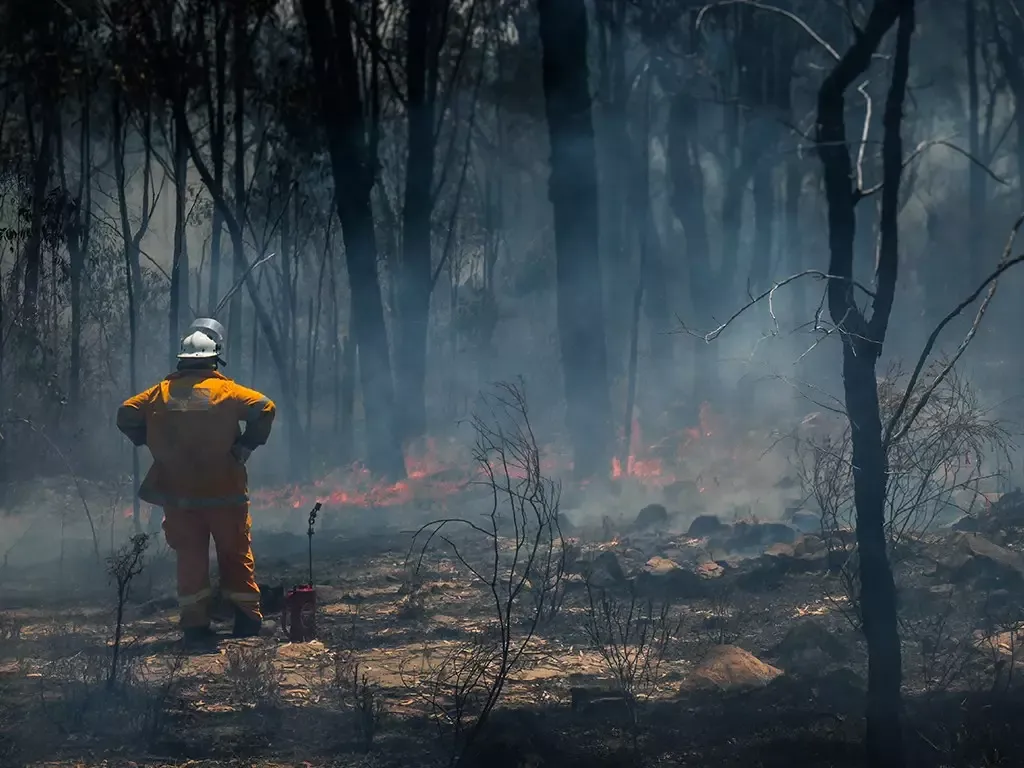Overview
With Australia currently in the midst of one of the worst and most protracted bushfire seasons on record, it is timely to discuss the long-term impacts that these events have on many workplaces, livelihoods and individuals.

Many people, either directly or indirectly, have had their daily lives and workplace routines disrupted or forever changed due to the ongoing bushfire crisis. For those employees and employers affected by the bushfires, there are several workplace rights and entitlements relating to natural disasters that you should be aware of.
Employee leave entitlements
Community Service Leave
All employees, including casuals, are entitled to take community service leave for the purpose of certain voluntary emergency management activities, provided what they are doing fits the definition of a voluntary emergency management activity. This leave applies to the activity and reasonable travel and rest time and there is no limit on the amount of community service leave an employee can take. Awards and agreements can contain additional provisions in relation to community service leave and, although there is no obligation to pay employees for taking such leave, employers may choose to do so.
Sick, Carer’s or Special Leave
Employees (other than casual employees) affected by a natural disaster or emergency may be entitled to take paid sick or personal/ carer’s leave. An employee can take paid carer’s leave to care for or support a member of their immediate family or household who is sick, injured or has an unexpected emergency.
For example, an employee injured during a bushfire, or who is unwell and unable to work due to smoke inhalation, may be entitled to sick leave. Similarly, an employee may be able to take carer’s leave to care for their child if their child’s school closes unexpectedly due to a bushfire emergency.
Casual employees and full-time and part-time employees who have used all of their paid sick and carer’s leave are entitled to two days unpaid carer’s leave per occasion to provide care and support to an immediate family or household member due to illness, injury or in the event of an unexpected emergency. Subject to the circumstances, ideally an employee should communicate with their employer when they are going to take sick or carer’s leave. Additionally, an employer can allow an employee to take paid or unpaid ‘special leave’ to address their personal circumstances.
Employers’ duty of care
Employers have a duty of care to all employees to provide them with a safe place of work. Where conditions, such as bushfires, smoke, haze or extreme weather may be a health and safety risk, employers need to consider whether they are meeting that duty of care by remaining open.
Simply put, if an employee is likely to be put at risk by attending work when there is a bushfire or other natural disaster, it’s best to close down until it is safe for employees to return to work.
Employers can also consider using flexible working arrangements where it is suitable to allow employees to work from home or from other work-sites where it is unsafe for them to attend work or get to work due to a bushfire, smoke haze or other natural disasters.
If a business needs to temporarily close, employers may be able to stand down full time and part time employees. This includes situations where an employee cannot do useful work because:
- equipment breaks down, if the employer isn’t responsible for it; or
- there is stoppage of work for which the employer can’t be held responsible, including severe and inclement weather or natural disasters (such as bushfires).
During a stand down period, an employee doesn’t need to be paid (although an employer may choose to pay employees if they wish); however, they accrue leave in the usual way.
There is no need to ‘stand down’ casual employees as they can be informed that they are not required to work on any given day if the employer cannot operate due to the circumstances of a bushfire or other natural disaster.
Unfortunately, for some businesses and employers across the country, the destruction caused by the bushfires will require them to close permanently or shut down for an extended period. While this is obviously a deeply distressing time, several matters will need to be addressed, including dealing with the future of your employees. Fortunately, there is help out there to guide you on the best course of action.
As a starting point, the Federal Government has advice and support services available to for Australian businesses affected by the recent bushfires, see https://www.business.gov.au/news/bushfire-support.
Importantly, don’t be afraid to utilise the resources available to seek assistance for yourself and those around you who have been impacted by the bushfires, both mentally and physically.
Your Employees Mental Health and Wellbeing
As alluded to above, the impact of bushfires is not only physical but can also deeply affect the mental state of people involved. Whether you, an employee or a colleague have been impacted directly or indirectly, the mental effects can be felt long after the fires have stopped burning.
It is also important to remember that no two people will react the same to traumatic events. Some of the common reactions that can be experienced that you should be aware of include:
- feeling anxious and/or overwhelmed;
- unable to focus and/or plan ahead;
- feeling numb (unable to process an emotion);
- constant tearfulness;
- intrusive memories, flashbacks, and/or bad dreams related to the bushfires;
- broken or disturbed sleep;
- constant questioning about what they could have or should have done; or
- replaying the events and what could have happened differently.
The symptoms range in severity and should start to fade around a month after the events; however, as an employer, work colleague or neighbour you should be aware of these symptoms and pay particular attention to the welfare of those who continue to display symptoms beyond a month.
It is good to provide information to all your employees about the signs, encouraging them to seek out a GP or mental health professional, or from publicly available mental health and wellbeing support services, including:
- Lifeline or call 13 11 14
- BeyondBlue or call 1300 22 4636.
Perks People Solutions provides external HR assistance to employers with all manner of workplace related issues – mental health first aid training, mediation, workplace investigations, wage audits and on-site HR assistance. For more information get in touch with Cecilia White, Director, Perks People Solutions.
